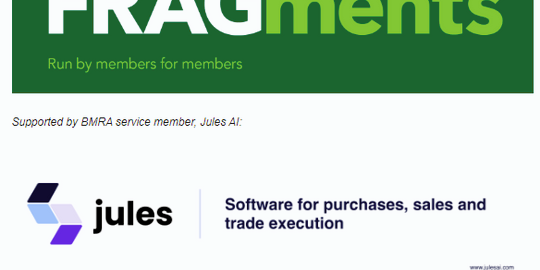BMRA urge event organisers to follow Glastonbury to safeguard revellers
Music festival bosses across the UK have been urged to follow Glastonbury’s lead by asking festival-goers to leave disposable vapes at home during events this summer.
The British Metals Recycling Association (BMRA) is calling on summer festivals to act on the grounds of safety and fire risk.
The BMRA, which represents the metal recycling sector in the UK, say more fires are occurring due to items containing lithium-ion batteries, like vapes, often due to not being disposed of correctly.
James Kelly of the British Metals Recycling Association: “We welcome the move by Glastonbury festival and would like to see other festivals follow suit to increase site safety this summer.
“At the very least we would like to see suitable disposal bins for vapes allowing festival-goers to safely dispose of and increase the recyclability of them.
“We have seen the devastation of fires at member sites caused by lithium-ion batteries being placed in the incorrect waste stream and we would hate to see this occur at a summer festival.
“Lithium-ion batteries in vapes are so small. There is a possibility if the weather takes a turn for the worse that the vape could end up in the mud, the battery could become separated from its casing and fall under the surface. If the land is used for grazing, this could potentially be swallowed by an animal. Let’s hope people are responsible.
“Another reason, often forgotten, is the fact that lithium-ion batteries can be recycled. Critical raw materials can be drawn from the batteries to be used again, including: lithium, graphite, cobalt and nickel. This not only saves natural habitat from being mined, but also the huge amounts of energy needed to process new metal mined from ore.
“With more and more UK-based lithium-ion recycling facilities opening, and the increased opportunities to recycle the batteries, we think there are plenty of options for festivals to provide such recycling amenities.”
It is estimated that lithium-ion batteries are responsible for around 48% of all waste fires occurring in the UK each year, costing the UK economy some £158 million annually according to research conducted by Eunomia Research & Consulting
Notes for editors:
For further information, contact [email protected] or [email protected]
ABOUT THE BMRA:
The British Metals Recycling Association (BMRA) represents the £7 billion metals recycling sector, which comprises an estimated 2,000 businesses and employs over 15,000 people. The industry trades and processes over 10 million tonnes of ferrous and non-ferrous metals every year, including: steel, aluminium, and copper. On average, we export eight million tonnes every year or 80% of all scrap arisings in the UK.
Scrap metals are secondary raw materials whose use reduces the demand for precious natural resources needed to make new metal compounds – such as iron ore in steelmaking; nickel in stainless steel; or alumina and bauxite in aluminium smelting.
For example, every tonne of recycled steel saves:
● 1.5 tonnes of iron ore
● 0.5 tonnes of coal
● 70% of the energy
● 40% of the water
● 75% of CO2 emissions
The figures for aluminium and copper are even more impressive. The recycling of copper requires up to 85% less energy than primary production. Around the world, this saves 40 million tonnes of
CO2. Recycling aluminium uses 95% less energy than producing aluminium from raw materials and
saves 97% of greenhouse gas emissions produced in the primary production process.


